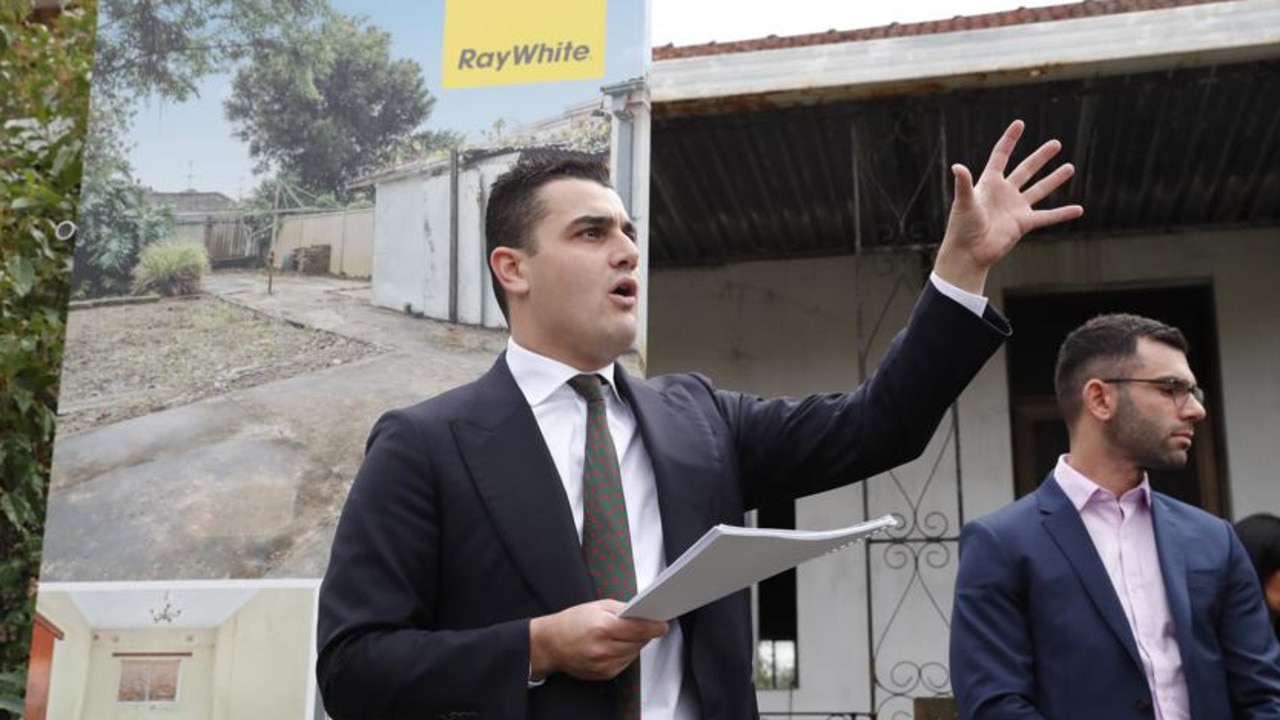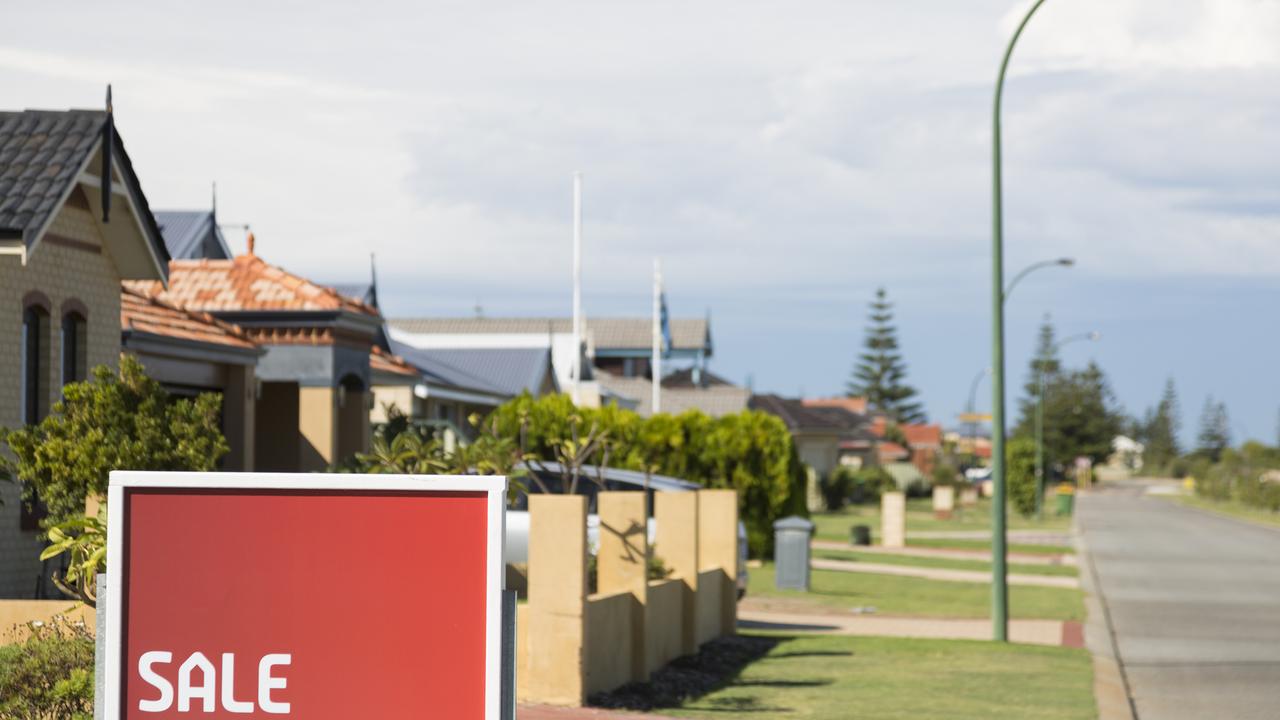‘Seriously costly mistakes’: Real estate traps Aussie first home buyers must avoid
Buying your first property is never easy. But one common mistake could easily see you paying hundreds of thousands more than you have to.
Buying your first property isn’t an easy thing to do, and with property affordability at all-time lows around Australia, it’s not getting any easier.
But at the same time, apart from some short-term blips, the property market keeps going up – so the longer you wait, the more you’ll need to pay.
If you’re 30 today, the cost of the average home is $376,000 higher than it was when you were 21. That means the opportunity cost of not getting into the property market earlier is well into the hundreds of thousands of dollars.
If you want until you’re 40 to get into the property market, based on the long-term property market return, you’ll need to pay around $783,000 more for the average home.
Finding a way to get into the property market is hard, but valuable.
I recently covered how you can buy your first home at a discount, and in this piece I wanted to outline the process you can follow to get there.

Set your strategy (first)
When most people start thinking about buying a property, their first step is to start having a look around online at what’s out there in the property market.
But this is completely backwards, and in some cases can lead you to making seriously costly mistakes.
Before you start looking at property, you need to set your strategy.
Specifically, you need to decide whether you’re buying the property as an investment or your own home, how much you’ll spend, how much you’ll borrow, and how much deposit you’ll put in.
Doing this will make sure you buy a property that fits well with your money. The alternative is that you find a property first, then you need to force your money to fit in with it – and this can lead to big trouble down the line.
If you don’t know how to do this on your own, consider using a financial adviser to help you plan. This will cost you a few bucks, but will pay for itself many times over.
If you’re not in a position to pay for a financial planner, you should consider using a good mortgage broker.
Brokers don’t charge a fee because they get paid by the banks when you take out a mortgage, so using a broker can be a more cost-effective way to get some support around your property purchase.
How an adviser or broker can help
To create a rock-solid property strategy, there are a few things you need.
First is an understanding of how much money you can borrow.
Now, I’m not saying you should borrow as much as the banks will lend you, but knowing your borrowing capacity will give you a good starting point for building your property strategy.
A good adviser or broker will also be able to help you understand what government schemes and benefits you can access.
The First Home Super Saver Scheme, the Home Loan Deposit Scheme, First Home Owner Grants and State-based stamp duty concessions are all tools you may be able to use to make buying your first property easier.
Understanding these schemes, how they work and whether any or all of them are right for you is an important part of the next step in your first property buying process – setting your deposit target.

Setting your property entry point and timeline
Being crystal clear and laser focused on how much savings you need to get into the property market is powerful and will help you buy your property sooner. Once you understand what first property buyer schemes you can use and have set your property strategy, how much money you need to make it happen will become clear.
Once you know your entry point, you can create a timeline around when you’ll get there. You’ll need to be clear on how much money you can save each week or month to add to your property deposit. This should give you some good motivation to make it happen, as you’ll have a clear path from where you are today to being ready to pull the trigger on your property purchase.
Pro tip: Once you’ve set your deposit target and timeline, putting this money into a separate savings account that’s clearly labelled “Property Deposit” should help to hack your thinking and pump you up to hit your targets faster, and will also mean you’re less likely to borrow (or steal) from this account as you work on building up your property deposit.
Get your mortgage pre-approval
When you’re around six months out from your property purchase, you should restart conversations with your mortgage broker and start getting your financial ducks in a row.
Three months out from the purchase, you’ll want to get a mortgage pre-approval in place.
This is where the banks basically rubber stamp that they will approve your mortgage once you find a property, and this step will give you the confidence to start shopping in earnest.
Once you start looking at properties, make sure you’re very clear on your strategy and only look at properties that fit.
By this point you’ve done all the hard work to get to a place where you can execute on a solid property strategy – you don’t want to let your emotions or psychology get in the way and lead you to make compromises that could cause regrets down the line.

Negotiate and secure your property
I’m not going to pretend to be an expert on property negotiations, but from having helped hundreds of people buy properties over the years, I can confidently say there is no one-size-fits-all approach that works. There’s a balance of art and science, with a solid sprinkling of luck thrown in for good measure.
You also should be prepared for a little bit of disappointment, because it often takes a few cracks before you get what you want.
Don’t get discouraged here when you’re so close to the finish line – keep following through the process until you get your dream result.
The wrap
Buying your first property isn’t easy – but it is an important step towards your long-term financial security.
There are a lot of different ways to be right when it comes to buying property, so don’t fall into the trap of listening to the experts and gurus when they say you must do things a certain way – you don’t.
While there’s no one approach that’s ideal for everyone, there is an approach that will be perfect for you.
Take the time to set your strategy first, be clear on how you’ll get there and then keep yourself motivated and on track until you get the result you want.
Your future self will thank you.
Ben Nash is a finance expert commentator, financial adviser and founder of Pivot Wealth, the creator of the Smart Money Accelerator, author of Replace Your salary by Investing and host of the Mo Money podcast. He runs regular free online money education event which you can book here.






